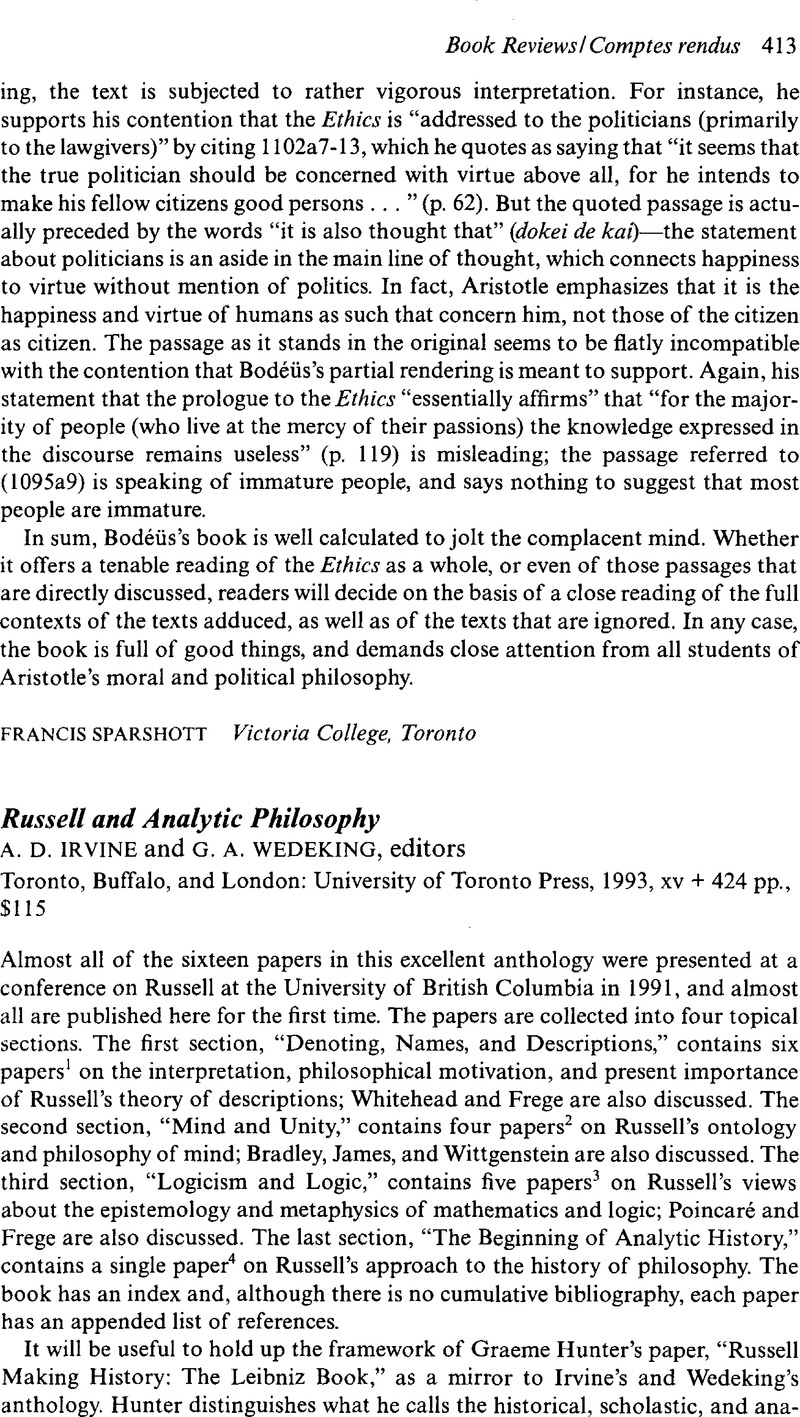No CrossRef data available.
Published online by Cambridge University Press: 13 April 2010

1 By Mark Sainsbury; Simon Blackburn and Alan Code (reprinted); Michael Pakaluk; Francisco Rodríguez-Consuegra (reprinted); Stephen Neale; and William Lycan.
2 By Nicholas Griffin, Bernard Linsky, Stuart Shanker, and Robert Tully.
3 By Michael Detlefsen (reprinted), Jean-Pierre Marquis, Judy Pelham, Peter Hylton, and Gregory Landini.
4 By Graeme Hunter.
5 Russell, Bertrand, Theory of Knowledge: The 1913 Manuscript (London: Routledge, 1992), pp. 131, 79; emphases added.Google Scholar
6 Neale knows this, of course. In his book Descriptions (Cambridge, MA: MIT Press, 1990), he says that, “While the semantical project is undoubtedly an important and interesting one, it should be emphasized that Russell's primary concerns lay elsewhere. The Theory of Descriptions was originally conceived as a contribution to metaphysical and psychological projects…” (p. 6).
7 For example, see Descriptions, where Neale takes himself to have “detached Russell from his sense-datum epistemology” (p. 18) in the course of construing the theory of descriptions “as a contribution to … an empirically adequate theory of meaning for natural language” (p. 6).
8 Tully is here quoting Russell from The Analysis of Mind and Wittgenstein from Philosophical Investigations.
9 Einstein, Albert, quoted in the preface to Bertrand Russell, Philosopher of the Century: Essays in His Honour, edited by Schoenman, Ralph (London: Allen & Unwin, 1967), p. 10.Google Scholar